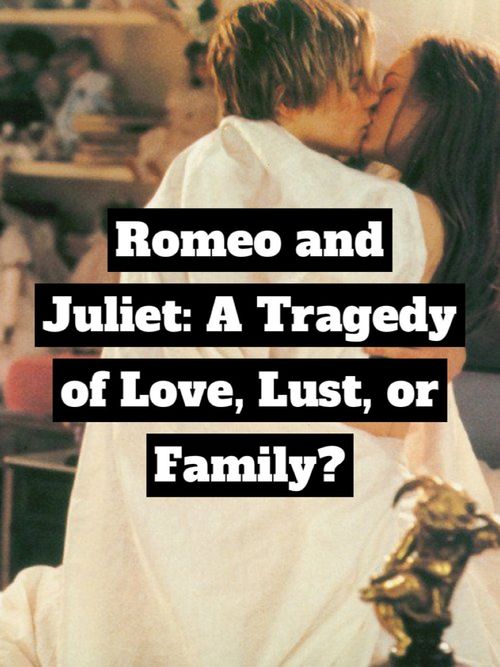Romeo and Juliet: A Tragedy of Love, Lust, or Family?
Feb 15, 2022 · 3 mins read
0
Share
Part 1: Just a teen romance?
In 1597, Shakespeare published Romeo and Juliet, a play that has become the emblem of teenage romance and unrequited love. Is the play’s image accurate though?
Save
Share
As one of Shakespeare's most successful tragedies, is it fair to label it as a love story for the ages and ignore the dark, cathartic finale?
Save
Share
Scholars obsess over misreadings of the play with modern twists, but the Baz Luhrmann 1996 film adaptation has been best received thanks to its dramatised ending (mirroring that of Ancient Greek tragedies) and display of unbridled teenage lust.
Save
Share
The play begins with a fierce confrontation between men of the Capulet and Montague families. Set in Verona, these families have age-old conflicts that are yet to be resolved.
Save
Share
We first meet Romeo when he is sulking over a former crush. This sets up his persona of the ‘melancholy lover’, a popular trope when this play was performed in the 19th century (the peak of Romanticism).
Save
Share
Juliet is introduced to us in the context of Paris’ attempts to court her. She is not keen, and although her parents delay the idea of a marriage, she is forced to see him at a Capulet ball that eve.
Save
Share
At this ball, Romeo searches for his old crush but instead chances upon Juliet. It is love at first sight - or is it?
Save
Share
It’s at this moment many believe the fateful love story begins - but it is important to contextualise why Romeo and Juliet begin their whirlwind romance.
Save
Share
Romeo and Juliet are both in unhappy circumstances, and so perhaps it is more rational to assume they are actually looking for each other rather than ‘fate’ pushing them together.
Save
Share
Nonetheless, after their brief conversation they separate. Later that night, Romeo interrupts Juliet's soliloquy with the famous “Where art thou?”. After more insubstantial lustful displays of affection for one another, the following morning they are wedded by Friar Lawrence.
Save
Share
0
